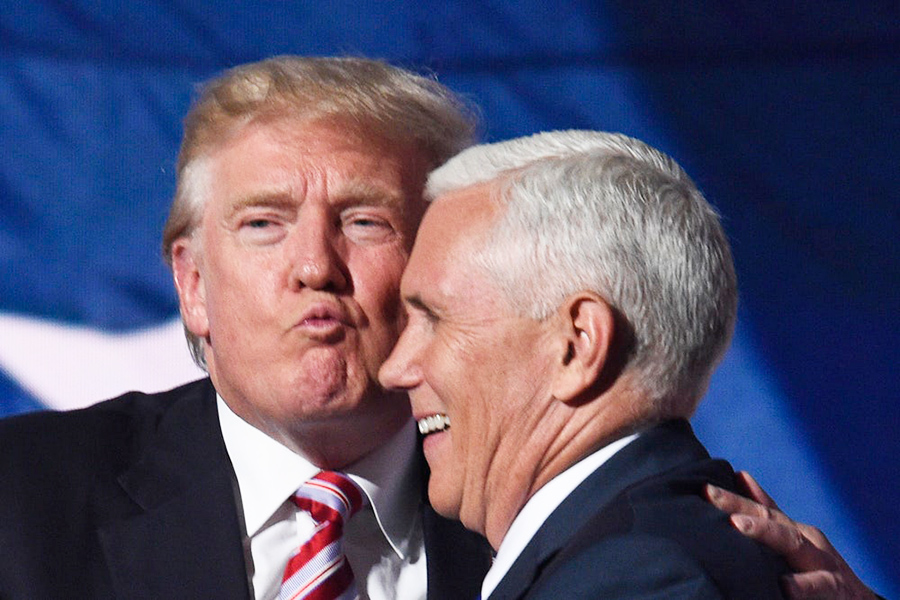President Donald Trump’s second State of the Union address was long, chaotic and lacking in policy initiatives.
An event meant to highlight the accomplishments of the president, the SOTU instead drew attention to Speaker of the House Nancy Pelosi, the women of the 116th Congress and Stacey Abrams, the first black woman to give a SOTU response.
For LGBTQ Americans, the SOTU was defined more by what was not in it than by what was.
Among the guests in the SOTU audience was Navy Lt. Commander Blake Dremann, a trans man who has been deployed 11 times and won numerous accolades. The active-duty Dremann, a guest of Sen. Kirsten Gillibrand (D-N.Y.) — one of four female senators running for the 2020 Democratic presidential nomination — is president of SPARTA, an LGBT advocacy organization.
Trump has banned trans people from enlisting in the military and, last month, the U.S. Supreme Court — with the help of Trump’s two new appointees — upheld the ban in a 5-4 decision, while lower courts continue to debate its merits.
Trump did not acknowledge Dremann or the ban in his speech.
Before Tuesday’s SOTU, the White House hinted that Trump would use the address to declare war on HIV/AIDS, with a 2030 end-date for curtailing the disease. In anticipation of this announcement, various AIDS advocacy groups such as New York’s ACT-UP, issued lengthy commentaries.
Politico had reported “under Trump’s 10-year strategy, health officials would target the U.S. communities with the most HIV infections and work to reduce transmissions by 2030. The strategy has been championed by top health officials, including HHS Secretary Alex Azar and CDC Director Robert Redfield.”
Trump said during the address, “In recent years, we have made remarkable progress in the fight against HIV and AIDS. Scientific breakthroughs have brought a once-distant dream within reach. My budget will ask Democrats and Republicans to make the needed commitment to eliminate the HIV epidemic in the United States within 10 years. We have made incredible strides. Incredible. Together, we will defeat AIDS in America. And beyond.”
He didn’t offer a specific sum or plan and his dismantling of the Presidential Advisory Council on HIV/AIDS a year ago is an action that contradicts his words.
Abrams’ rebuttal on behalf of Democrats received widespread acclaim, with most commentators and pundits declaring it the speech Trump should have given. Social media lit up with posts urging Abrams to run for president. The former Minority Leader of the Georgia House of Representatives was the Democratic candidate in the state’s recent gubernatorial election, narrowing losing to Republican Brian Kemp in a hotly contested race.
Pelosi and other Democratic Congresswomen dressed in white to honor the centenary of suffrage and passage of the 19th Amendment. The huge block of women in white provided a striking image on the House floor. The sheer volume of new women — including women of color — in the Democratic Congress provided a stark contrast to the white Republican Congressmen, distinguished solely by differing tie color.
The SOTU was held a week later than originally scheduled. Pelosi had refused to allow the president to make his address in the House of Representatives while the government was shut down. A moment in which the smiling Pelosi stood to give seemingly sarcastic applause to Trump quickly took on multiple meme forms on social media, garnering millions of views and responses.
Trump made no mention of the shutdown in his 82-minute speech, although he reiterated his demand for a wall at the southern border and again cited “caravans and buses filled with illegal immigrants” headed toward the United States.
As expected, Trump also addressed economic and employment gains under his presidency, if not always with accuracy.
“No one has benefited more from our thriving economy than women, who have filled 58 percent of the new jobs created in the last year,” he declared., eliciting perhaps the evening’s most animated response as the Congresswomen in white stood up and cheered wildly.
“You were not supposed to do that,” the president quipped.
“Thank you very much. Thank you very much. All Americans can be proud that we have more women in the workforce than ever before,” he said, adding: “Don’t sit yet. You are going to like this. And exactly one century after the Congress passed the constitutional amendment giving women the right to vote, we also have more women serving in the Congress than ever before.”
The irony wasn’t lost on those in attendance and many viewers: It was Trump’s election that spurred women to run for office in record numbers. Pennsylvania — which had sent only eight women to Congress before the recent election — is now represented by four women.
Trump ended his address with a call for Americans to “rekindle the bonds of love and loyalty and memory that link us together as citizens, as neighbors, as patriots. I am asking you to choose greatness.”
